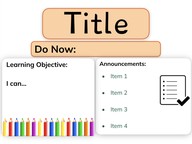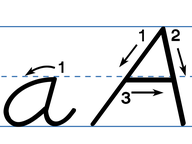



8,000 schools use Gynzy
92,000 teachers use Gynzy
1,600,000 students use Gynzy
General
In this lesson, students will be introduced to many nonfiction text features, including table of contents, headlines, pictures, captions, maps, diagrams, bold print, glossary, and index. They will become more familiar with each feature by exploring nonfiction books in the classroom and finding these features.
Standards
CCSS.ELA-Literacy.RI.2.5
CCSS.ELA-Literacy.RI.3.5
Learning objective
Students will be able to identify and use nonfiction text features.
Introduction
Students will read a passage about sunflowers and list 2 facts they learned. Discuss why it is important to use text features to find information in informational texts. Go over some of the text features they might have seen, such as table of contents, captions, and maps/diagrams.
Instruction
Introduce the table of contents and its purpose. An example of a butterfly book will be shown in the lesson. Students will find the headline on the next slide about bird beaks. They will also predict the information that will be in that section. Students will also explore pictures, captions, maps, and diagrams. Next, they will look at the role of bold print in informational text. They will also look at an example of a glossary. Students will practice finding the page they need to look at by using the index. They will then match all the informational text features to their descriptions.
Quiz
Students will respond to 10 multiple-choice questions.
Closing
Students will recall lesson concepts:
- What are some text features you learned about?
- How can text features help when reading?
Students will look through nonfiction books in the classroom and label text features. They will make a list of all the text features and found to share with the class.
The online teaching platform for interactive whiteboards and displays in schools
Save time building lessons
Manage the classroom more efficiently
Increase student engagement
Discover more!
About Gynzy
Gynzy is an online teaching platform for interactive whiteboards and displays in schools.
With a focus on elementary education, Gynzy’s Whiteboard, digital tools, and activities make it easy for teachers to save time building lessons, increase student engagement, and make classroom management more efficient.



